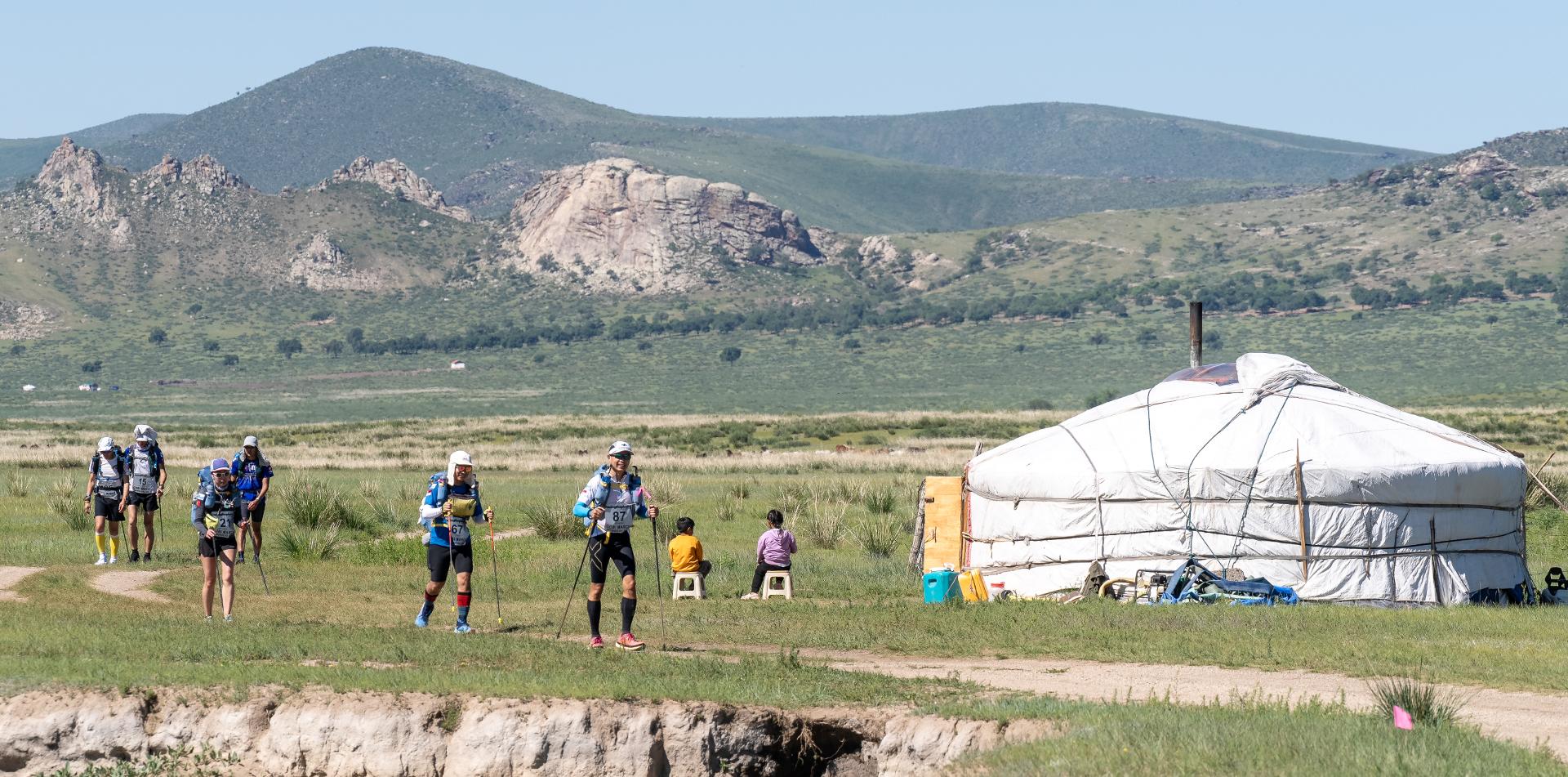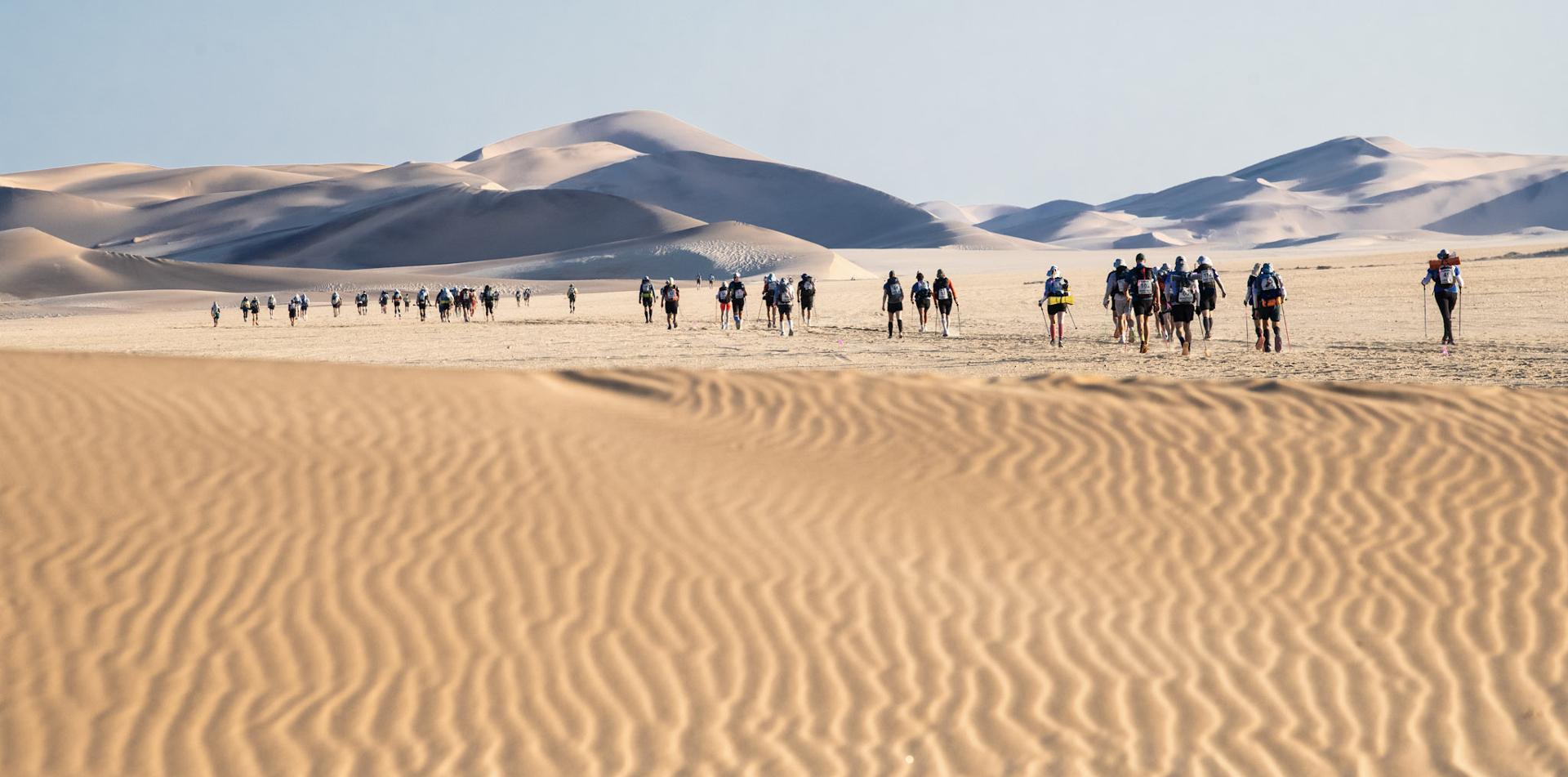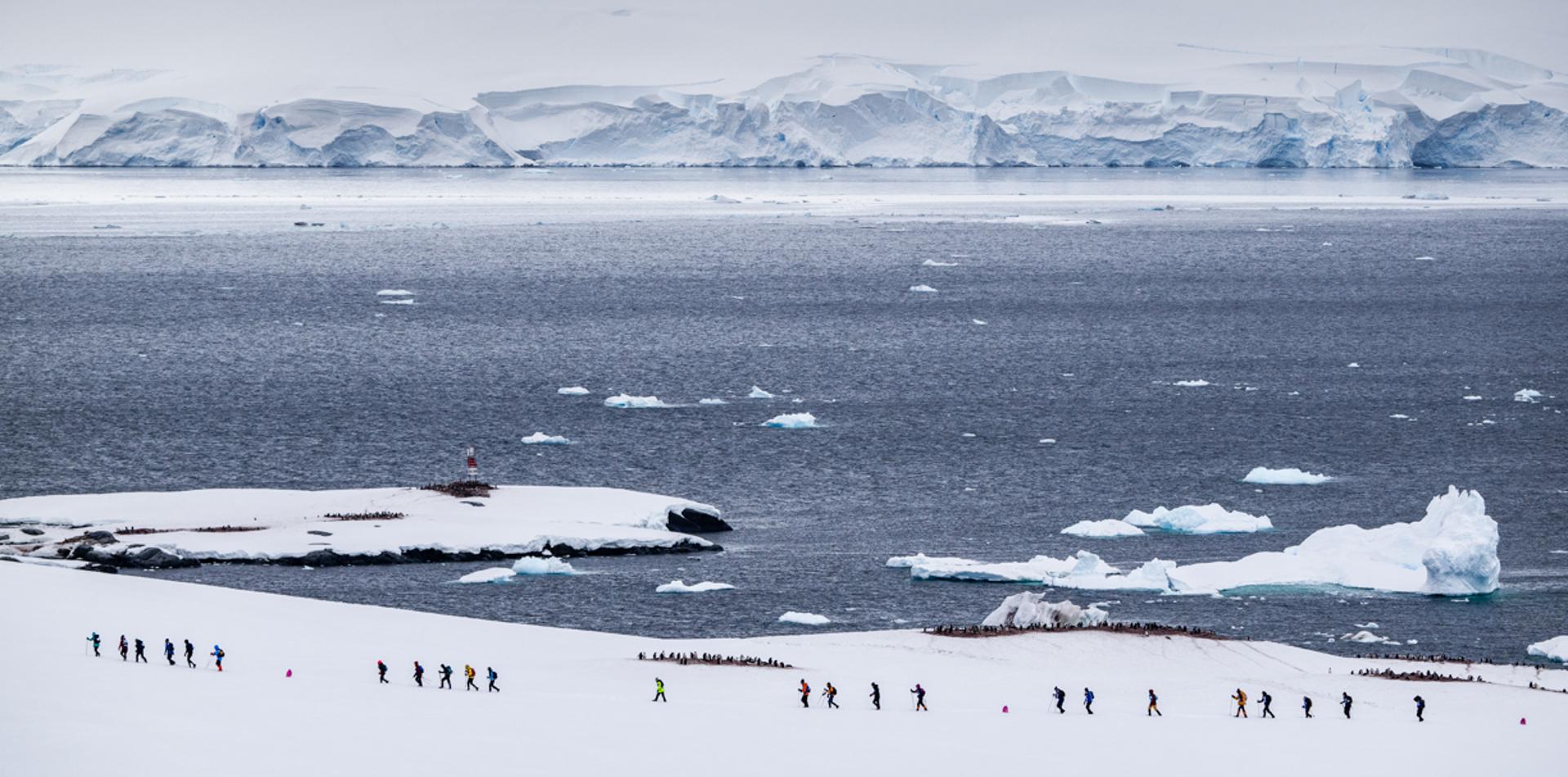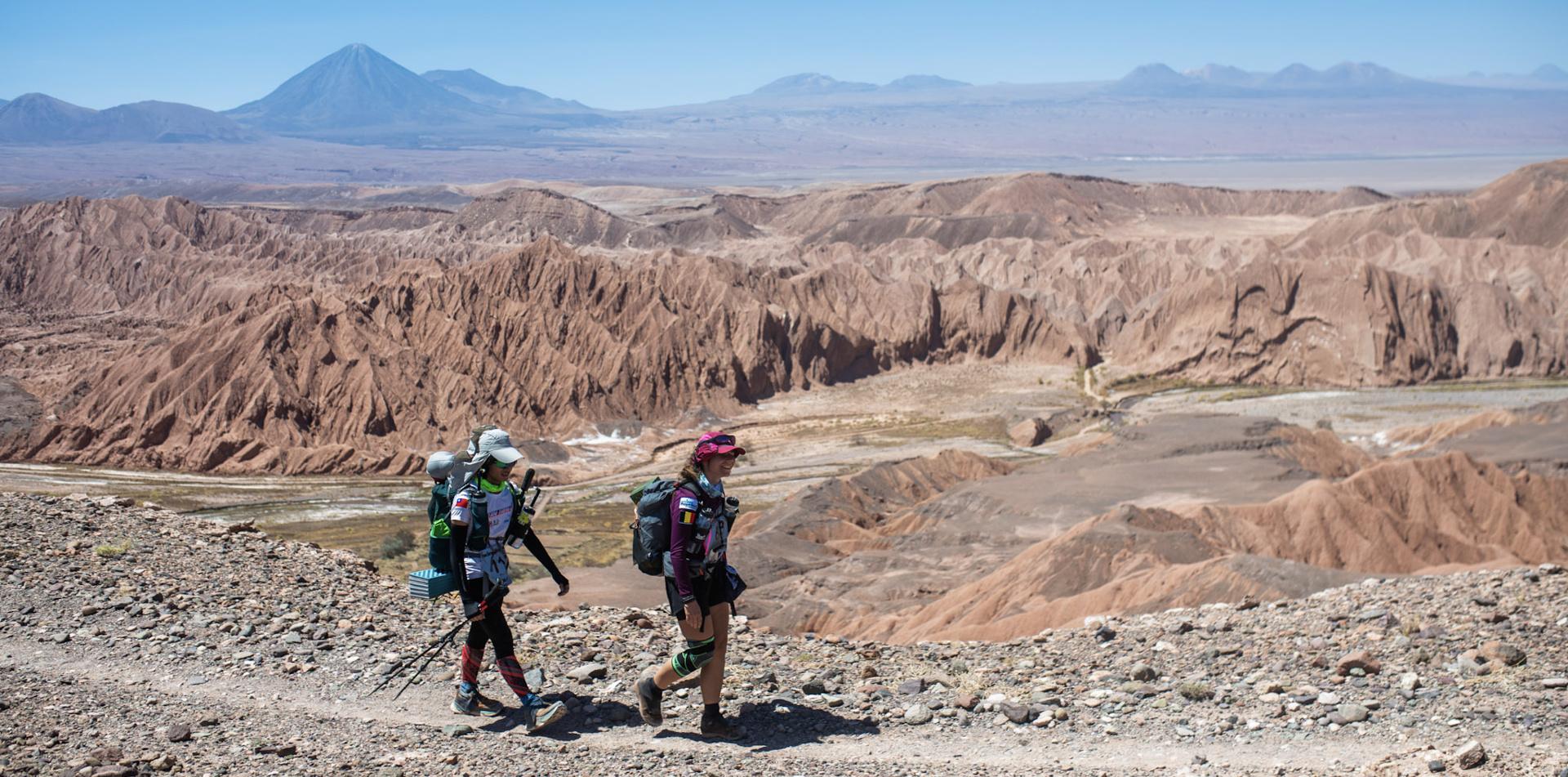Volunteer to Competitor: Lessons Learnt
When Sarah Pemberton’s parents suggested that the Georgetown University student volunteer for a 4 Deserts Race Series event before competing herself, the Hong Kong-raised half-English half-Chinese runner had “a sneaking suspicion that volunteering at the race was supposed to make me realize that the human body is not made to run for 250km in the desert.” But the opposite effect occurred: after volunteering at the 2014 Atacama Crossing (Chile), Pemberton is now ready to make her 4 Deserts Race Series competitive debut at the Sahara Race 2015 in Jordan this March.
Like many other competitors and volunteers, Pemberton arrived back from the Atacama Crossing “on a high” and because the Sahara Race 2015 lined up perfectly with her school schedule, she selected to compete in this race. But the short time frame also meant a tight training schedule.
“After the Atacama Crossing, I was on a high for several weeks; I created an extremely elaborate training plan that combined advice from various competitors whom I had met in Chile,” Pemberton said. “It only took several weeks for me to fall behind schedule and I felt bad every time I missed a workout or didn’t complete the distance I had aimed for due to time constraints. I was classically naïve in overestimating the time I would have to spare for training, having not fully considered the time I would spend with my internship and doing coursework in my final year at the School of Foreign Service at Georgetown University. Yet, I need only look to those juggling jobs and families to find inspiration.”
Pemberton has recently changed her approach with regular updates to her planning schedule – she sets goals for each fortnight and workouts are planned for the week before based on how much time she can realistically spend training. Her goal is just to finish the race, which she said helps replique montre de luxealleviate the pressure of the competition; Pemberton wants an enjoyable experience training and racing in Jordan.
The start of the New Year always brings new resolutions and although Pemberton had already committed to the Sahara Race, she decided to adopt a resolution to help her training.
“I came across the quote ‘how we spend our days is how we spend our lives’ on my Chrome momentum app over the Christmas holidays, and I’ve adopted it as my resolution for 2015: I’d like to make how I live each day align more closely with how I envisage myself living my life,” Pemberton said. “That includes running and making training plans that I follow through on. In the final stretch, I hope to complete several more back-to-back (-to-back-to-back) days of long runs, bike rides, and hikes!”
One advantage Pemberton has of having been a volunteer prior to competing for the first time is gaining a better idea of the race by observing and interacting with competitors. Pemberton’s picked up a few tips from Atacama Crossing 2014 competitors from bringing crushed crisps (crushed so that they take up less space) to toe socks to prevent blisters. Poles, Pemberton said, help on the hills, while gaiters stop sand from seeping in. Other advice includes powdered hot chocolate and coffee and a sleeping mat. “And,” Pemberton said, “a Go-Pro to capture it all.”
While volunteering may have given Pemberton a better idea of what to expect, it was also a unique experience in itself.
“Volunteering was so much more than I expected it to be,” Pemberton said. “I anticipated it as simply an opportunity to learn: what was the terrain like, how long does it take to cover each day’s distance, what foods should I bring, what materials should I have, how should I train [and] instead, I came away with an extremely enriching and fulfilling life experience. I texted my parents before boarding the flight home, ‘Being out here makes me feel so alive’.”
Pemberton said that being a volunteer helped her better understand the 4 Deserts Race Series. While the challenge of completing the 250-km seven-day ultramarathon is at the forefront of everyone’s minds, Pemberton, like many other competitors and volunteers, believes it’s “the environment and the people [who] make it a really unique race experience.”
“The biggest takeaway I have from volunteering is to race for the experience rather than race for competition,” Pemberton said. “There were many people racing as a personal challenge, and many who raced to raise money for charity. Either way, I think the people who succeeded in the race had distilled their motivations for completing the race and kept that at the forefront. I hope to be that kind of a competitor in Jordan.”
Like the rest of the competitors at the Sahara Race 2015, Pemberton will be relying on a group of volunteers to help get her through each of the six stages. And as Pemberton transitions from volunteer to competitor, another member of her family joins the 4 Deserts Series family as a volunteer – her father.
“I am ecstatic that my dad will be volunteering - I'll be so excited to see him at whichever checkpoint he's stationed at each day,” Pemberton said. “It’s impossible to convey the experience of one of these races, so I’m happy that dad will be able to share this with me. At 21, I feel like ultra-racing might become a life-long hobby, and I want my family to understand why.”







 Newsletter
Newsletter
 Online Store
Online Store





